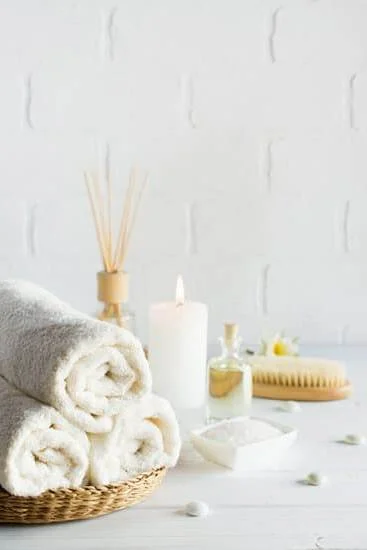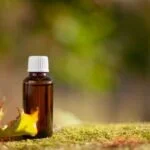Have you ever wondered if aromatherapy could be the solution to your sleep troubles? Many people swear by the calming and relaxing effects of essential oils, claiming that it helps them achieve a better night’s rest.
But does aromatherapy really work for sleep? In this article, we will delve into the science behind using aromatherapy as a natural remedy for improving sleep, explore the top essential oils recommended for promoting better sleep, and discuss how to use aromatherapy effectively to support healthy sleeping patterns.
Aromatherapy is a holistic healing treatment that uses natural plant extracts to promote health and well-being. When used specifically for promoting sleep, certain essential oils have properties that can help calm the mind and body, reducing feelings of stress and anxiety that may interfere with falling asleep.
The scent molecules from these oils are believed to stimulate areas of the brain responsible for emotions and memory, influencing neurotransmitters like serotonin or dopamine which can impact mood and regulation of sleep-wake cycles.
In this section, we will examine the scientific evidence supporting the use of aromatherapy for improving sleep quality. We will also explore some research and studies that have been conducted on the effects of aromatherapy on sleep patterns in order to provide a comprehensive understanding of whether or not this natural remedy can truly help you get a good night’s rest.
So, what are the best essential oils for promoting sleep, and how can you incorporate them into your nightly routine? Let’s find out in the following sections.
Top Essential Oils for Promoting Sleep
Aromatherapy has been used for centuries as a natural remedy for promoting relaxation and improving sleep quality. The use of essential oils in aromatherapy is based on the belief that certain scents can have a direct impact on the brain, influencing emotions and promoting a sense of calm and well-being. When it comes to promoting sleep, there are several essential oils that are particularly effective in helping individuals relax and unwind before bedtime.
1. Lavender oil: Known for its calming and soothing properties, lavender oil is one of the most popular essential oils used to promote sleep. Research has shown that inhaling lavender oil can help reduce anxiety and improve sleep quality.
2. Chamomile oil: Chamomile oil is often used to soothe nerves, ease feelings of tension, and promote relaxation. It is particularly beneficial for those who struggle with insomnia or have trouble falling asleep.
3. Valerian root oil: Valerian root has long been used as a natural remedy for insomnia. The oil derived from valerian root is believed to exert sedative effects, making it an effective option for those who struggle with sleep disorders.
Incorporating these essential oils into your bedtime routine can be done in various ways, including through diffusing them in the air, adding a few drops to a warm bath, or applying topically with a carrier oil such as coconut or jojoba oil.
While some individuals may experience positive results from using aromatherapy for sleep, it’s important to note that research on its effectiveness is still ongoing. It may not work for everyone, so it’s important to explore different methods and consult with a healthcare professional if you have persistent sleep issues despite trying aromatherapy.
How to Use Aromatherapy for Better Sleep
Diffusion
Using an essential oil diffuser is one of the most popular and effective ways to use aromatherapy for better sleep. Simply add a few drops of your chosen essential oil to the water in the diffuser and let it disperse throughout the room. This method allows you to breathe in the calming scent as you relax and prepare for sleep.
Topical Application
Another way to use aromatherapy for better sleep is through topical application. You can add a few drops of essential oil to a carrier oil, such as coconut or jojoba oil, and apply it to pulse points like your wrists, neck, or temples. This allows the aroma to be absorbed through the skin and inhaled as you go about your evening routine.
Aromatic Bath
Creating a relaxing atmosphere before bedtime can have a significant impact on sleep quality. Adding a few drops of essential oils to a warm bath can help promote relaxation and prepare your body for sleep. Lavender, chamomile, and ylang-ylang are popular choices for an aromatic bath that can enhance your overall sleep experience.
By incorporating these methods into your nightly routine, you can experience the benefits of aromatherapy for better sleep. Whether it’s through diffusion, topical application, or aromatic baths, finding the right approach that works best for you can lead to improved sleep quality.
Research and Studies on Aromatherapy and Sleep
Aromatherapy is a holistic healing treatment that uses natural plant extracts to promote health and well-being. But does aromatherapy work for sleep? Several research studies have been conducted to explore the effectiveness of aromatherapy in improving sleep quality.
One study published in the National Institutes of Health (NIH) examined the effects of lavender essential oil on sleep quality in 67 women with insomnia. The results showed that the group using lavender oil experienced improved sleep quality compared to the control group. Another study, also published by NIH, investigated the effects of inhaling chamomile essential oil on sleep patterns in elderly people. The findings suggested that inhaling chamomile oil helped improve overall sleep quality and reduce symptoms of depression.
Furthermore, a meta-analysis published in the Journal of Alternative and Complementary Medicine analyzed 12 studies on the effects of aromatherapy on sleep. The meta-analysis concluded that aromatherapy can be effective in improving both subjective and objective measures of sleep quality.
Overall, these research studies provide evidence that aromatherapy can have a positive impact on sleep quality for individuals experiencing difficulties with falling asleep or staying asleep.
| Study | Findings |
|---|---|
| NIH Study on Lavender Oil | Improved sleep quality in women with insomnia |
| NIH Study on Chamomile Oil | Improved overall sleep quality in elderly individuals |
| Meta-Analysis | Aromatherapy can be effective in improving subjective and objective measures of sleep quality |
Aromatherapy vs Traditional Sleep Aids
When it comes to improving sleep, many people turn to traditional sleep aids such as over-the-counter medications or prescription drugs. However, an alternative option that has been garnering attention is aromatherapy.
Aromatherapy as a Natural Alternative
One of the main reasons why individuals are turning to aromatherapy over traditional sleep aids is its natural approach. While some medications can come with side effects or the risk of dependency, essential oils used in aromatherapy are derived from plants and are often considered a safer option for promoting relaxation and sleep.
The Effectiveness of Aromatherapy
Research has shown that certain essential oils used in aromatherapy may have sedative effects on the body, making them a potential aid for improving sleep quality. Studies have indicated that inhaling the aroma of lavender, cedarwood, or bergamot essential oils can lead to decreased levels of stress and anxiety, creating an environment more conducive to falling asleep.
Despite the growing interest in using aromatherapy for sleep improvement, it’s important to note that individual responses may vary. While some people may find relief from insomnia or restless nights through the use of essential oils, others may not experience the same benefits. Additionally, it’s worth considering that while traditional sleep aids may provide immediate results for some individuals, they also come with potential risks and side effects that should be weighed against the natural approach of aromatherapy.
Personal Experiences With Aromatherapy and Sleep
I have personally found that using aromatherapy for sleep has been a game-changer in my nighttime routine. I used to struggle with falling asleep and staying asleep, but since incorporating essential oils into my bedtime routine, I have noticed a significant improvement in the quality of my sleep. Here are some personal experiences with using aromatherapy for better sleep:
- Lavender oil: I have found that diffusing lavender oil in my bedroom before bedtime really helps me relax and unwind. The calming and soothing scent of lavender helps to ease any tension or stress from the day, creating a peaceful atmosphere for a restful night’s sleep.
- Chamomile oil: Another essential oil that I have had success with is chamomile. Whether it’s through a diffuser or adding a few drops to a warm bath, chamomile oil has helped me to feel more relaxed and ready for sleep. It has become an essential part of my nighttime routine.
- Eucalyptus oil: When suffering from congestion or sinus issues that may affect my ability to breathe properly at night, eucalyptus oil has been incredibly helpful. By clearing nasal passages and promoting easier breathing, it has contributed to better sleep quality during times of illness or allergies.
Overall, using essential oils as part of my nightly wind-down routine has positively impacted my ability to fall asleep and stay asleep throughout the night. While individual experiences may vary, it is worth considering adding aromatherapy into your own sleep regimen if you are struggling with getting a good night’s rest.
Potential Risks and Precautions of Aromatherapy for Sleep
Aromatherapy is generally considered safe for most people when used properly and in the recommended amounts. However, there are still potential risks and precautions to consider when using aromatherapy for sleep. One important consideration is the sensitivity of the individual to certain essential oils.
While most people can tolerate essential oils without any issues, some individuals may experience allergic reactions or skin irritation. It’s always advisable to perform a patch test before using a new essential oil, especially if you have sensitive skin.
In addition, it’s crucial to be mindful of the concentration and dosage of essential oils used for aromatherapy. Using too much essential oil can cause adverse effects such as headaches, dizziness, nausea, or respiratory issues.
It’s important to dilute essential oils with a carrier oil before applying them to the skin or using them in a diffuser. Pregnant women, children, and pets may also have specific sensitivities or reactions to certain essential oils, so extra caution should be taken when using aromatherapy around these individuals.
Another potential risk of aromatherapy for sleep is the improper use of essential oil diffusers. Leaving a diffuser on for extended periods in an enclosed space can lead to overexposure and inhalation of too much essential oil vapor. This can result in irritation of the respiratory system or other adverse effects. Proper ventilation and following manufacturer instructions on diffuser usage are important steps in preventing these risks.
Overall, while aromatherapy can be a beneficial tool for promoting better sleep, it’s important to be aware of these potential risks and take necessary precautions when using essential oils for this purpose.
| Potential Risks | Precautions |
|---|---|
| Allergic reactions or skin irritation | Performing patch test before use |
| Adverse effects from using too much essential oil | Diluting with carrier oil and following recommended dosage |
| Overexposure to essential oil vapor from improper use of diffusers | Proper ventilation and following manufacturer instructions for diffuser usage |
Conclusion
In conclusion, the question of whether aromatherapy really works for sleep has been examined from multiple angles in this article. The science behind aromatherapy for promoting sleep is rooted in the idea that certain essential oils can have a calming and sedative effect on the body and mind. Top essential oils such as lavender, chamomile, and valerian have been identified as effective for promoting sleep, with various methods of use including diffusing, topical application, and inhalation.
Research and studies on aromatherapy and sleep have yielded mixed results, with some showing positive effects on sleep quality and duration while others show no significant improvement compared to a control group. Additionally, personal experiences with aromatherapy for sleep vary widely, with some individuals finding it extremely beneficial while others do not notice any difference at all.
When considering whether aromatherapy works for sleep, it’s important to weigh its potential risks and precautions. While generally considered safe when used properly, there are some potential side effects to be aware of, particularly when using certain essential oils topically or internally. Ultimately, the effectiveness of aromatherapy for sleep may vary from person to person, so it’s worth trying different methods and oils to see what works best for individual needs.
Frequently Asked Questions
How Effective Is Aromatherapy for Sleep?
Aromatherapy can be effective for sleep as certain scents like lavender and chamomile are known to have calming and relaxing properties, helping to create a more conducive environment for sleep.
Which Aromatherapy Is Recommended for Sleep?
Lavender aromatherapy is highly recommended for sleep due to its soothing and calming effects on the mind and body. This scent has been shown to promote relaxation and reduce anxiety, making it ideal for bedtime use.
Is It OK to Sleep With Aroma Diffuser?
It is generally okay to sleep with an aroma diffuser, but it’s important to use it safely. Make sure the diffuser is placed on a stable surface away from the bed, use it in a well-ventilated room, and opt for intermittent diffusion rather than continuous.

Are you looking for a natural way to improve your health and wellbeing?
If so, aromatherapy may be the answer for you.





